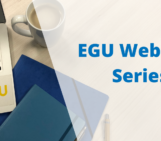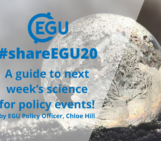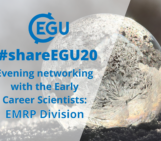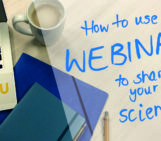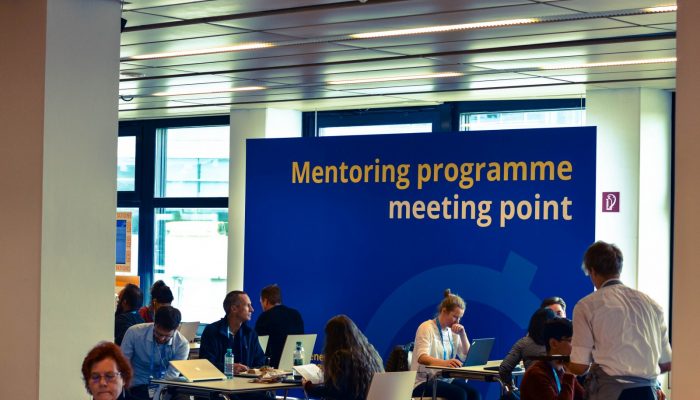
The countdown to EGU22 has officially begun! If you are participating in the General Assembly this year and want to support and connect with other researchers in or outside of your field, we encourage you to sign up for the EGU22 Mentoring Program. The program matches experienced conference participants (mentors) with those who have not previously participated in a large geoscience conference (mentees). The matching will be based on several factors including research interests and availability.
The Mentoring Program aims to help participants network with other conference attendees, exchange feedback and ideas on activities and career development and to make the most of the many opportunities that EGU22 has to offer. Previous participants have described their experiences as enjoyable and rewarding. To learn more about the program, watch the recording of our recent EGUwebinar on mentoring or read on for a short summary of the Mentoring Program.
EGUwebinar: Mentoring 101
On 9 February 2022, organizers of the EGU Mentoring Program as well as previous mentees and mentors shared their experiences in an engaging webinar organized by the EGU Early Career Scientists (ECS) working group.
Didn’t attend the webinar? Don’t worry, we have you covered! You can watch the recording and/or skim through the discussion’s key points summarized below.
What are some of the benefits of the mentoring relationship?
During the EGU mentoring webinar, Stephanie Zihms, who took part in the Mentoring Program as a mentor, shared her thoughts on how a mentorship relationship benefits both the mentor and the mentee. “From the mentor perspective, what I really enjoy is learning from someone’s experience that is very different to my own, and how that can help me make changes at my own institution and beyond,” she said referring to her experiences mentoring a black scientist. Stephanie especially encourages the ECS (Early Career Scientists) including PhD and postdoc researchers who have attended the General Assembly at least twice to sign up as mentors and not let imposter syndrome get in their way. “People will definitely benefit from your experiences,” she said pointing out the usefulness of having 1:1 connections especially at a large conference like EGU.
Similarly, Adhithiyan Neduncheran, who participated in vEGU21’s Mentoring Program as a mentee, found the mentoring scheme to be well-structured, helpful and especially timely as he was transitioning from finishing his master’s to thinking about starting a PhD program. “My mentor helped me decide if I wanted to get a PhD, and just because I’m interested in research, whether or not I should end up doing a PhD.” He explained how his mentorship relationship expanded his career horizon and made him think about all options including those outside of academia. Through the mentoring program, Adhithiyan was also able to connect and network with other mentees both before and during the vEGU21 conference.
Another mutually beneficial scheme: OSPP Awards
The webinar also highlighted the EGU Outstanding Student and PhD candidate Presentation (OSPP) Awards, introduced by Lena Noack, OSPP Coordinator. This scheme aims to improve the overall quality of poster and PICO presentations at the General Assemblies and foster excitement and interest in early career researchers for presenting their work. Lena encourages everyone participating in EGU22 to take part in this program, either as a candidate for OSPP award (check eligibility) or as an OSPP judge. Last year’s award recipients can be found here.
We hope this has inspired you to enrol for the EGU Mentoring Program! We’re excited to see you join! If you have any questions concerning the program, please get in touch with us at mentoring@egu.eu

